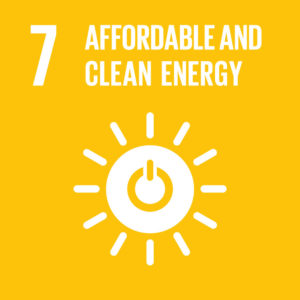
Who we are
Joanna Kulczycka
Department of Strategic Research at MEERI, Polish Academy of Sciences and Faculty of Management AGH UST, Krakow, Poland. kulczycka@meeri.pl
Marina Mistretta
Building Physics and Building Energy Systems, Department PAU, University Mediterranea of Reggio Calabria, Italy.
mistretta@dream.unipa.it
Next Conference Track
Goals and Objectives
Energy is central to nearly every major challenge and opportunity the world faces today, either for jobs, security, climate change, food production or increasing incomes. Access to energy for all is essential. For many decades, fossil fuels such as coal, oil or gas have been nearly the only sources of energy, but fossil fuels are the largest source of anthropogenic greenhouse gas emissions in the world. The fossil fuel industry and its products accounted for 91% of global industrial GHGs in 2015, and about 70% of all anthropogenic GHG emissions1.
The Goal 7 of the Agenda 2030 Sustainable Development Goals (SDGs) is “To ensure access to affordable, reliable, sustainable and modern energy for all”. To this end, the following targets are set out to reach by 2030:
- ensure universal access to affordable, reliable and modern energy services;
- increase substantially the share of renewable energy in the global energy mix;
- double the global rate of improvement in energy efficiency;
- enhance international cooperation to facilitate access to clean energy research and technology, including renewable energy, energy efficiency and cleaner fossil-fuel technology;
- promote investment in energy infrastructure and clean energy technology;
- expand infrastructure and upgrade technology for supplying modern and sustainable energy services for all in developing countries.
Tracking progress in the clean energy transition is essential to assess collective progress toward the Paris Agreement’s goals and other political imperatives such as reducing air pollution. It is also critical to aid countries, companies, and other stakeholders as they identify specific ways to further step-up their efforts by 2030 by investing in clean energy sources such as solar and wind, and adopting cost-effective standards for a wider range of technologies. Expanding infrastructure and upgrading technology to provide clean energy in all developing countries is a crucial goal that can both encourage growth and help the environment.
The above targets require:
- policy actions and measures to modify technologies of energy production and energy-related processes, across all sectors;
- policies that aim at changing the behaviour of the public, commerce and industry in connection to energy consumption.
The main goal of this track is to discuss new approaches, methods and case study applications in order to assess developments, current policy progress and pathways toward low-carbon technologies.
Papers, which contribute to the tracking progress in the clean energy transition, are welcome. Thus, we invite authors to submit papers that specifically, but not exclusively, deal with the following topics:
- Renewable energy sources, as alternative technology options;
- Energy use and efficiency measures (supply and demand side), such as demand-behaviour interventions;
- New relevant energy metrics, time frames (short- to long-term) and levels (aggregated metrics for outcomes, detailed metrics for drivers of energy sector change);
- New approaches to predict impacts of climate changes on energy systems, from resources supply to end-use energy services demand;
- Eco-innovation in energy generation and consumption;
- Theoretical and practical contribution of circular economy concept for affordable and clean energy;
- Reduction of energy consumption from a socio-economic perspective;
- Clean energy for transition of mining regions;
- Raw materials demand for development of clean and affordable energy;
- Energy transition and policy;
- Clean energy industry;
- Energy digitalization for sustainability transition.
Length and content of the proposed abstract to the track
Each proposed abstract (in connection to an area pointed out above) of between 300 and 500 words (including all aspects),
- shall be best organized (without headlines) along usual structures (e.g. intro/method/findings or results/ discussion/conclusions)
- does not need to, but can include references
- shall provide in a final section
- a. to which SDG(s) and SDG-target(s) their proposed abstract especially relate to (e.g. “SDG+Target: 14.1.”).
- b. a brief indication how the proposed contribution relates to the topic of the Conference
Abstracts which do not outline points 3.a.) AND 3.b.) might be considered less relevant in the Review.
Past Conferences
Messina, Italy 2018
Track “4b. Affordable and clean energy”
Marina Mistretta (marina.mistretta@unirc.it) Joanna Kulczycka (kulczycka@meeri.pl)
All the contribution presented in the track “4b. Affordable and clean energy” provided interesting insight in the path toward sustainability and showed that we are in a transition toward clean and efficient use of energy, to reduce the impact of energy production on the environment and economy, in the attempt to match the 7th Goal of Sustainable Development Goal. Eleven speeches were carried out and discussed about new approaches, methods, projects and case study applications in order to assess developments, current policy progress and pathways toward low-carbon technologies. New technological solution in the field of clean energy were presented both using for example hydrogen, biomass. The theoretical part covers proposal of using different models for calculation efficiency and sustainability of different solutions concerning carbon pricing or ranking technical options. Discussion about the following topics was carried out: READ MORE
Bogotá 2017 Conference
track 3b3c:
Climate change mitigation and adaptation In relation to climate change mitigation, a broader view with examples of future pathways towards an extended use of renewable electricity from Japan, Portugal, Iceland, and Colombia were presented as part as a carbon neutral requirement under the Paris Agreement (read more)
Knowledge Resources
Recommended Sources:
a) Overview of renewable energy alternatives
b) The most recent assessment reports on mitigation are available at the IPCC website.
b) Look at the UN Sustainable Development Solutions Network on Deep Decarbonization Pathways
Routledge & Earthscans' Sustainability Hub
Find useful essays, free books and articles, case studies and more at our partner's website:
LinkedIn Discussions
Recent discourses on the ISDRS LinkedIn discussion group:
Oct 2017 Peter Strachan posted: Sustainable Energy and Transition Theory
February 2017 Annie Goeke posted: Ivory Coast First Climate Change Initiative Project - EcoCity Cocody